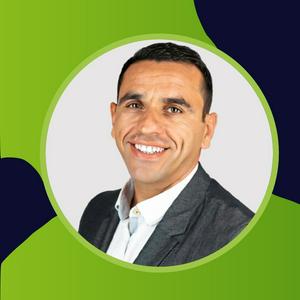Health, Wellbeing and Public Health by Päivi Sillanaukee
João Bocas - The Wearables Expert Interviews Päivi Sillanaukee, Ambassador for Health and Wellbeing for the Ministry for Social Affairs and Health of Finland
The Topic is: Health, Wellbeing and Public Health
We have covered:
- Good practices of health and Wellbeing of the Nordics
- Barriers to people achieving good health and how can HealthTech be of help
- The current state of Global Health Equity and how can we improve it
How can we make #Healthcare Uncomplicated?
Connect with Päivi Sillanaukee
LinkedIn: https://www.linkedin.com/in/p%C3%A4ivi-sillanaukee-fi/
Twitter: https://twitter.com/FinGovernment
SUBSCRIBE NOW - https://bit.ly/3iQ6EXP
Feel free to 📣 CONNECT WITH ME 🟢:
LinkedIn: https://www.linkedin.com/in/joaobocas/
Twitter: https://twitter.com/WearablesExpert
Share this episode with your networks:
https://www.youtube.com/watch?v=G15eBGIZOlg
In an insightful conversation hosted by the renowned Wearables Expert, João Bocas, we delved into the world of health, wellbeing, and public health with Päivi Sillanaukee, Ambassador for Health and Wellbeing for the Ministry for Social Affairs and Health of Finland.
The discussion shed light on critical aspects of Nordic health practices, challenges in achieving good health, the role of HealthTech, and the pursuit of global health equity.
Good Practices of Health and Wellbeing in the Nordics
The Nordic countries have consistently ranked among the healthiest in the world. Päivi Sillanaukee highlighted some key practices contributing to this achievement.
She emphasized the strong emphasis on preventive care, a comprehensive healthcare system, and a culture of physical activity. Moreover, the Nordics place a significant focus on mental health, which plays a pivotal role in overall wellbeing.
Barriers to Achieving Good Health and the Role of HealthTech
The conversation turned to the barriers individuals face in attaining good health. Sillanaukee pointed out that disparities in access to healthcare, information, and resources can be major hurdles.
This is where HealthTech comes into play. Wearables, telemedicine, and health monitoring apps can bridge these gaps, providing people with the tools and knowledge to take control of their health.
The Current State of Global Health Equity
Global health equity has been an ongoing challenge, and the COVID-19 pandemic has underscored existing disparities. Ambassador Sillanaukee highlighted the importance of global cooperation and solidarity to address these issues.
She stressed that while progress has been made, more needs to be done to ensure that health resources and technologies are accessible to all, regardless of their location or socioeconomic status.
How Can We Improve Global Health Equity?
The discussion concluded with a focus on actionable steps to enhance global health equity. Sillanaukee called for continued investments in public health infrastructure, education, and technology.
She emphasized the need for governments, international organizations, and private sector stakeholders to work together to create innovative solutions and policies that prioritize health for everyone.
In an era where health and wellbeing are paramount, this interview provided valuable insights into the practices, challenges, and potential solutions that can shape a healthier and more equitable future for all.
João Bocas and Päivi Sillanaukee's discussion serves as a call to action for individuals, organizations, and governments to prioritize and invest in health, wellbeing, and public health initiatives worldwide.
SUBSCRIBE NOW - https://bit.ly/3iQ6EXP
#digitalhealth #publichealth #globalhealth #wellbeing #healthequity #wellness
